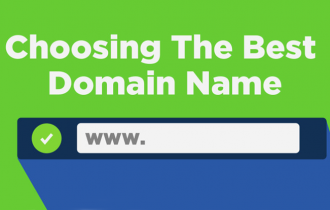SSL for Search Engines
What is SSL? In order to comprehend what SSL is, it is necessary to first understand what HTTPS is. HTTSP stands for Hyper Text Transfer Protocol Secure and is usually used on websites to safeguard e-commerce transactions. For instance, a user connects to online banking websites or e-commerce sites via HTTPs, these websites will inevitably encrypt the session with a digital Secure Socket Layers (SSL) Certificates. SSL certificates are small data files that digitally bind a cryptographic key to the domain of a particular website. Once the SSL certificate is installed, a secure connection gets enabled between the web server and web browser. This connection helps in stopping any visitor who is prying on the connection. Unfortunately, SSL certificates have been used only by a mere 10 per cent of websites.
 What is the Impact of SSL on Search Engine Rankings? Quite recently, Google made an announcement that having an SSL certificate will help site owners to significantly boost their SEO rankings. Adding a SSL 2048-bit key certificate on your site will fetch only a minor ranking boost. Google says that this will give websites only a small ranking benefit, which can be counted as a “very lightweight signal” as per the overall ranking algorithm. Google thinks it has an impact on “less than 1% of global queries” but further added that they may decide to strengthen the signal as they plan to encourage all website owners to switch from HTTP to HTTPS in order to keep all transactions safe and secure. Google conducted few tests and the HTTPS signals showed ‘positive results’ in terms of relevancy and ranking in Google’s search results.
What is the Impact of SSL on Search Engine Rankings? Quite recently, Google made an announcement that having an SSL certificate will help site owners to significantly boost their SEO rankings. Adding a SSL 2048-bit key certificate on your site will fetch only a minor ranking boost. Google says that this will give websites only a small ranking benefit, which can be counted as a “very lightweight signal” as per the overall ranking algorithm. Google thinks it has an impact on “less than 1% of global queries” but further added that they may decide to strengthen the signal as they plan to encourage all website owners to switch from HTTP to HTTPS in order to keep all transactions safe and secure. Google conducted few tests and the HTTPS signals showed ‘positive results’ in terms of relevancy and ranking in Google’s search results.
Things to be considered when switching from HTTP to HTTPS site for SEO!
It is imperative to employ appropriate measures while switching from HTTP to HTTPS site in order to ensure that the traffic flows smoothly, which means you must communicate to Google about your transition from HTTP to HTTPS. Ensure that you religiously follow the below mentioned tips till more documentation isn’t availed from Google:
- Use 2048-bit key certificates only
- Make a decision on the kind of certificate you need: single, multi-domain, or wildcard certificate.
- Never block your HTTPS site from crawling.
- Permit indexing of your pages by search engines wherever possible. Also avoid using noindex robots meta tags.
- Always use protocol relative URLs for all other domains
- Finally, ensure that you track your HTTP to HTTPS migration mindfully in analytics software and Google Webmaster Tools.
The topic of HTTPS/SSL is understandably quite overwhelming for some of us, and there is obviously a lot of information to be availed after Google’s latest announcement. It is strongly advisable that you don’t rush into a HTTPS migration as there are pertinent factors that need careful consideration, and, therefore, properly implemented SSL certificate is mandatory for effective SEO results. If you are planning to make a switch to HTTPS, it is a good idea to consult a qualified and experienced SEO consultant who can provide effective guidance at all stages of the moving.






